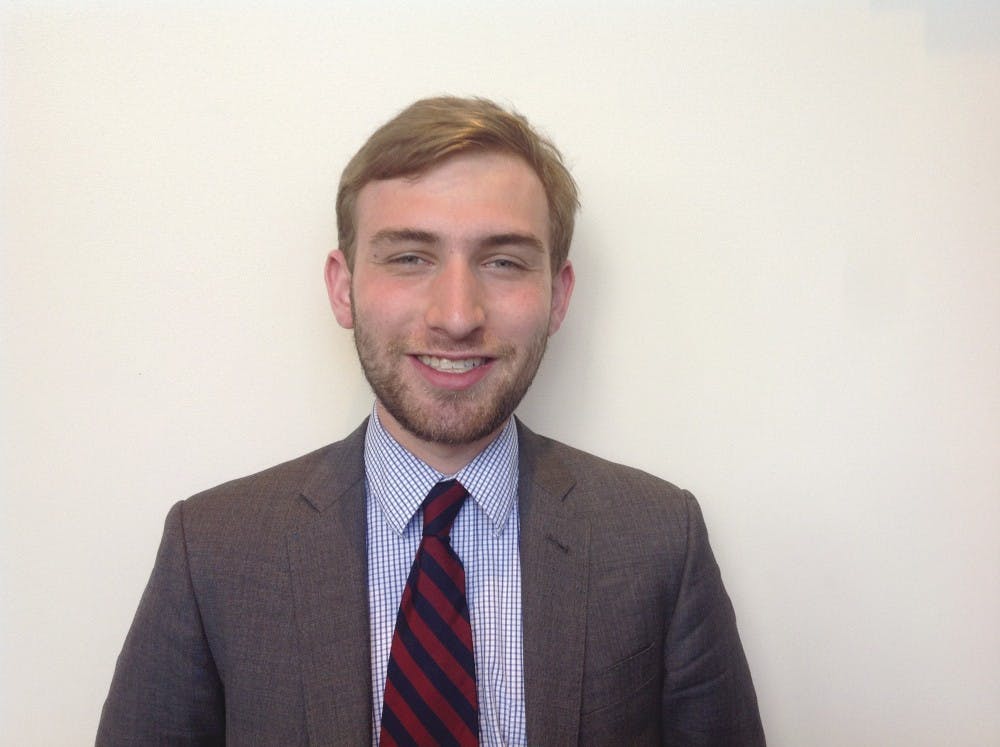Sometimes he’s an aspiring poet hoping to share his work with a literary magazine one day. Other times, he’s an ordinary college student, hanging out with family and friends. Still other times, he’s doing research regarding the use of medications for people with substance abuse, an interest that has earned him first or sole-author publications in many peer-reviewed journals and a prestigious scholarship to graduate studies in Ireland.
Recently named a George J. Mitchell Scholar, Wharton and College senior Theodore Caputi plans to pursue a master’s degree in public health with a concentration in health promotion at University College Cork in Ireland. Caputi said that he applied to the scholarship because of his specific interest in Ireland’s success at lowering smoking rates, which he hopes to apply to his future work with substance abuse prevention.
“These smoke interventions researched at the university level were translated into policy and cut down Ireland’s smoking rates significantly in the past 10-15 years,” Caputi said.
His interest in drug and alcohol abuse prevention began in 10th grade, when he, out of curiosity, researched and wrote a paper about the connection between leadership education and substance use prevention. Unaware of the amount of research already occurring in the field, he sent his paper to Dr. Amelia Arria, a scientist at the Treatment Research Institute in Philadelphia.
“I actually entered the research field because I couldn’t figure out why schools were still using ineffective substance use prevention programs,” Caputi said.
Arria introduced him to former Penn professor Thomas McLellan, who is the co-founder of the Treatment Research Institute and was a Professor of Psychology and Psychiatry at Penn before retiring in 2015. Caputi quickly saw the potential for reducing substance abuse among adolescents and started conducting research under McLellan’s guidance.
But Caputi’s work has not been so straightforward.
“The war on drugs... was largely driven by a sense of ethics: that drug users were bad people,” he said. “When I tell people I’m involved in substance use research, some think that I want to be the ‘moral police’ of drugs.”
Caputi fervently denied that notion and said he uses a public health approach, such as treating addiction like any chronic illness and building up a supportive infrastructure for adolescents so that they don’t feel like they need to use drugs as a way to escape.
Aside from his research involving substance abuse, Caputi founded the Penn Leadership Training Institute, which focuses on building leadership skills in Philadelphia’s middle and high school students.
“When young people are given leadership training, they feel more connected with their communities ... and feel more in control of their futures,” he said.
Reflecting upon his academics at Penn, Caputi listed his statistics and statistic computing classes as the most useful towards his career in research. He also credited the necessity of mathematics to understand economics, explaining his decision to pursue both a BA in math from the College and a BSE from Wharton.
This semester, however, Caputi is not taking classes at Penn, but is working for the Office of Drug and Alcohol Policy in the White House. He said McLellan, who was the Office’s Deputy Director from 2009 to 2012, inspired his interest in the internship.
Currently, Caputi is studying medication assisted treatment in criminal justice populations. He described his biggest takeaway from the job as “learn[ing] how the federal government uses and considers research to guide the National Drug Control Strategy.”
While he enjoys his work at the Office of Drug and Alcohol Policy in Washington DC, Caputi said his ultimate career goal is to become an economics professor and researcher. In his lifetime, he dreams of eradicating behavioral health disorders. He sees problems in the divide between research and policy and implementation and hopes to make research more applicable to real-life situations, he said.
However, over his last school year at Penn, Caputi wants to accomplish something simple.
“It would be impossible to thank all the people who’ve helped me,” he said. But he would very much like to do so.









